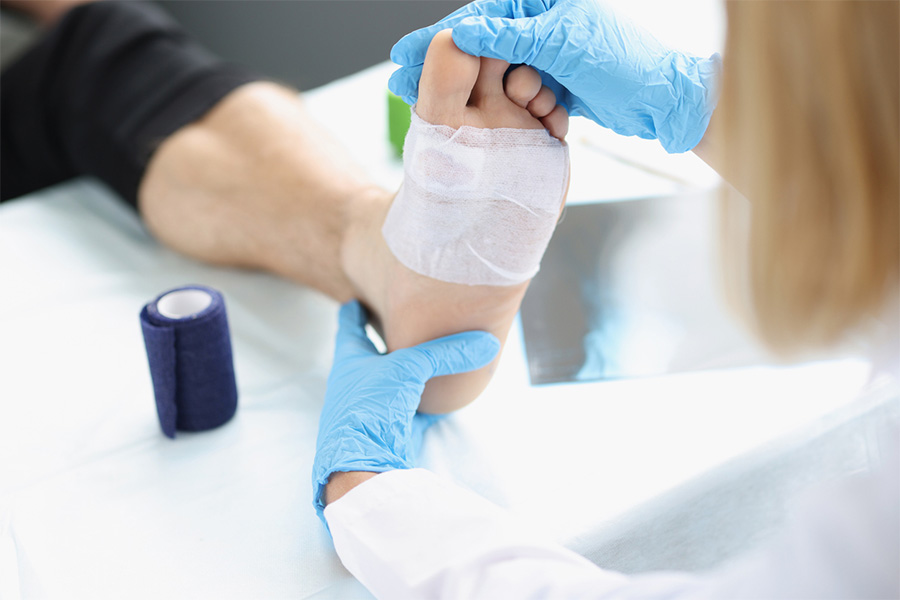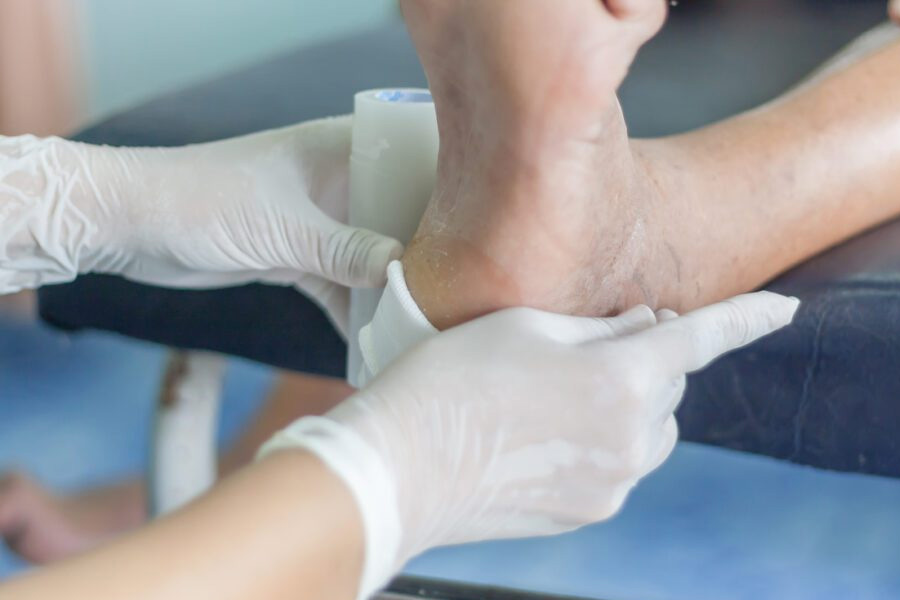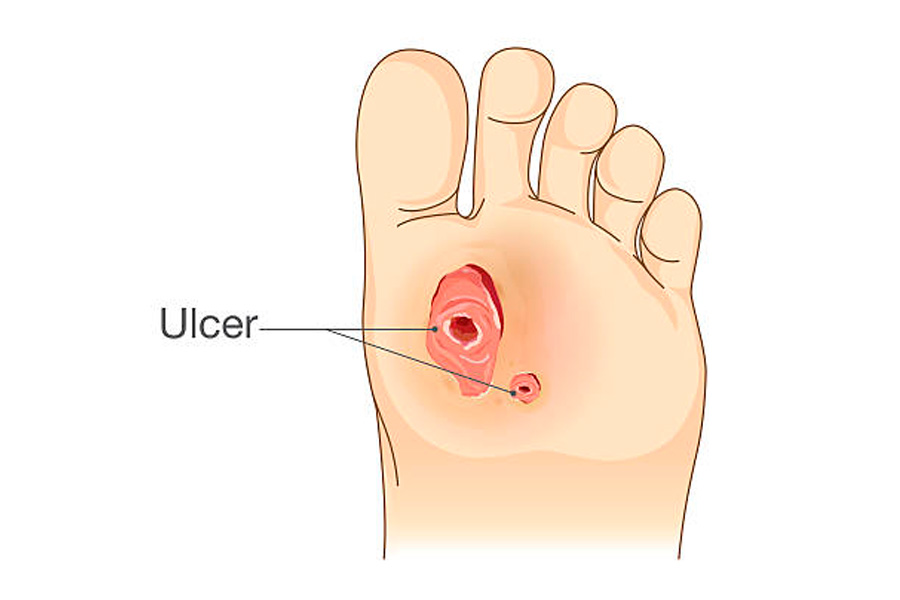If you have diabetes, managing blood glucose levels is not your only worry. Diabetes can lead to a serious health problem that can increase your risk of limb amputation if not cared for properly. When you have diabetes, even a small cut or scrape can turn into a serious wound within days. That’s because diabetes can cause damage to blood vessels and nerves, a condition called neuropathy, which can make it harder for wounds to heal. It is one of the things that you should pay extra attention to if you are living with diabetes.
If you discover a cut or scrape on your feet or any break in the skin, what you do next can make the difference between quick healing and amputation. That’s why proper diabetic foot care is critically important.
Proper Diabetic Wound Care
If you discover a wound or cut on your foot, wash it gently with mild soap and water. Wash it carefully and thoroughly to remove any debris that may cause an infection. After washing the wound, dry it completely and apply antibiotic ointment. Then, apply a bandage or dressing to the wound. It is important to keep it clean and dry at all times.
You should check your wound regularly to monitor the progression of healing. If your wound does not get better within 48 hours, and if you notice signs of infection, such as redness, swelling, or drainage, seek medical attention immediately.
Why See a Podiatrist for Proper Wound Care?
Podiatrists are trained in the appropriate treatment of diabetic wounds. They have all the tools needed to help your wound heal fast and effectively, such as fabricating special pads or inserts to help you keep the weight off your wound (also known as off-loading), and performing wound debridement, which involves the removal of yellow slough and biofilm from the wound which can impede healing.
Podiatrists can also treat serious diabetic wounds effectively, which may require bioengineered skin substitutes that stimulate wound healing or skin grafts to be applied over the wound to close it. Other surgical methods may involve addressing the underlying cause of poor wound healing.
If you have a diabetic wound that isn’t healing properly, it’s important to see a podiatrist right away. They can treat the wound and help prevent any further complications.
Diabetic Wound Treatment in Cincinnati, OH
Our board-certified podiatrists at Cincinnati Foot & Ankle Care are highly experienced in treating diabetic wounds. We have a superior diabetic foot care program and perform a range of in-office procedures to help wounds heal faster and reduce complications. We treat diabetic wounds, infected wounds, and ulcerations. Leave it to the hands of experts to apply proper wound care. We will make sure you understand what you need to do for successful wound healing, as well as correct daily care of your feet.
To schedule an appointment with one of our podiatrists, call our location nearest you or use our convenient online request form.
Share

People with diabetes often experience difficulty healing wounds.




